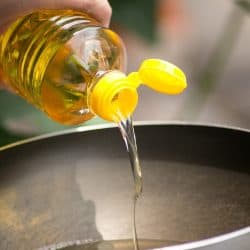Frying oil is a staple in any kitchen, and you're going to want to have it around. Storing your oil right in your deep fryer is a tried and true method for many cooks, allowing for multiple uses of the same oil in many dishes. But this raises the question of how long said frying oil would last — will it eventually go bad? Just how long is this method of cooking with frying oil sustainable? We here at KitchenSeer have looked into the subject for you and written about it down below.
Various factors go into how long your frying oil kept in your deep fryer can last. Frying oil used to fry vegetables, for example, lasts longer than oil used to fry meats. In general, however, provided your deep fryer has an airtight lid that will keep out contaminants, you can store and reuse oil for up to several weeks.
There are many more questions and details to go into on the subject. Continue reading below for more answers on how to utilize frying oil in your deep fryer safely.
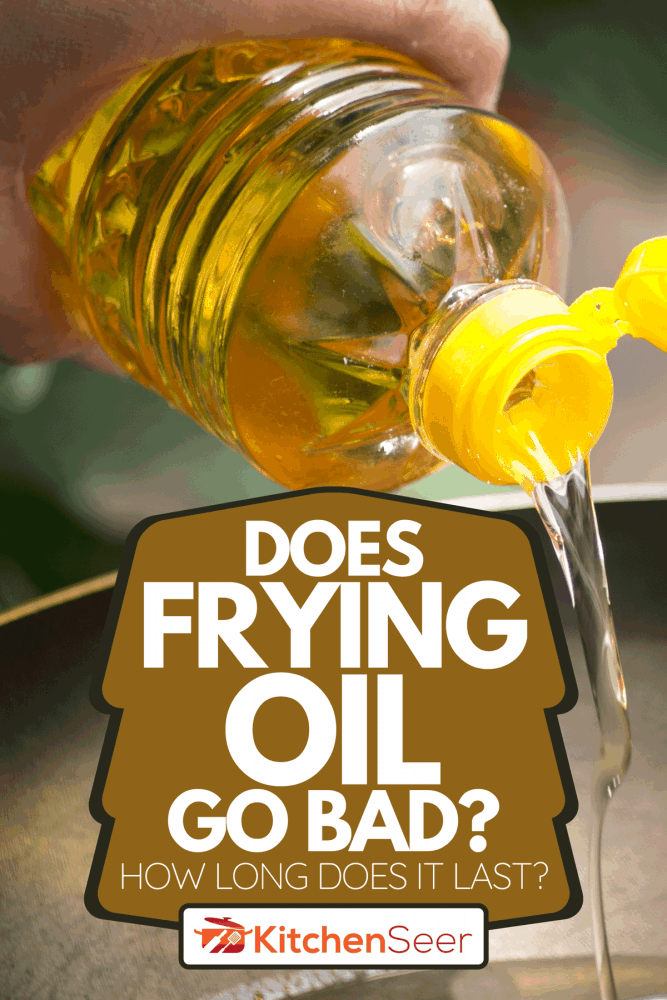
The benefits to storing and reusing your frying oil
There are a lot of benefits to reusing your frying oil, both practical and culinary. The simplest reason to reuse your frying oil is that you can. Disposing of oil after one use is wasteful and can rob you of some delicious future flavor combinations.
You will want to separate your oils somewhat due to this. You might want to keep oil for frying fish and shrimp, for example, and another for doughnuts and pastries. Some flavor overlap makes sense; others will want to be avoided.
It's also far more ecologically friendly to reuse frying oil instead of disposing of it. Chefs and home cooks dispose of their oil down the drain where it congeals and generally causes issues. The less we're doing this, the obviously better. Oils like peanut oil also tend to cost a pretty penny, making reusing it economically friendly as well.
With that said, make sure you're following the necessary steps to be safe while reusing your frying oil.
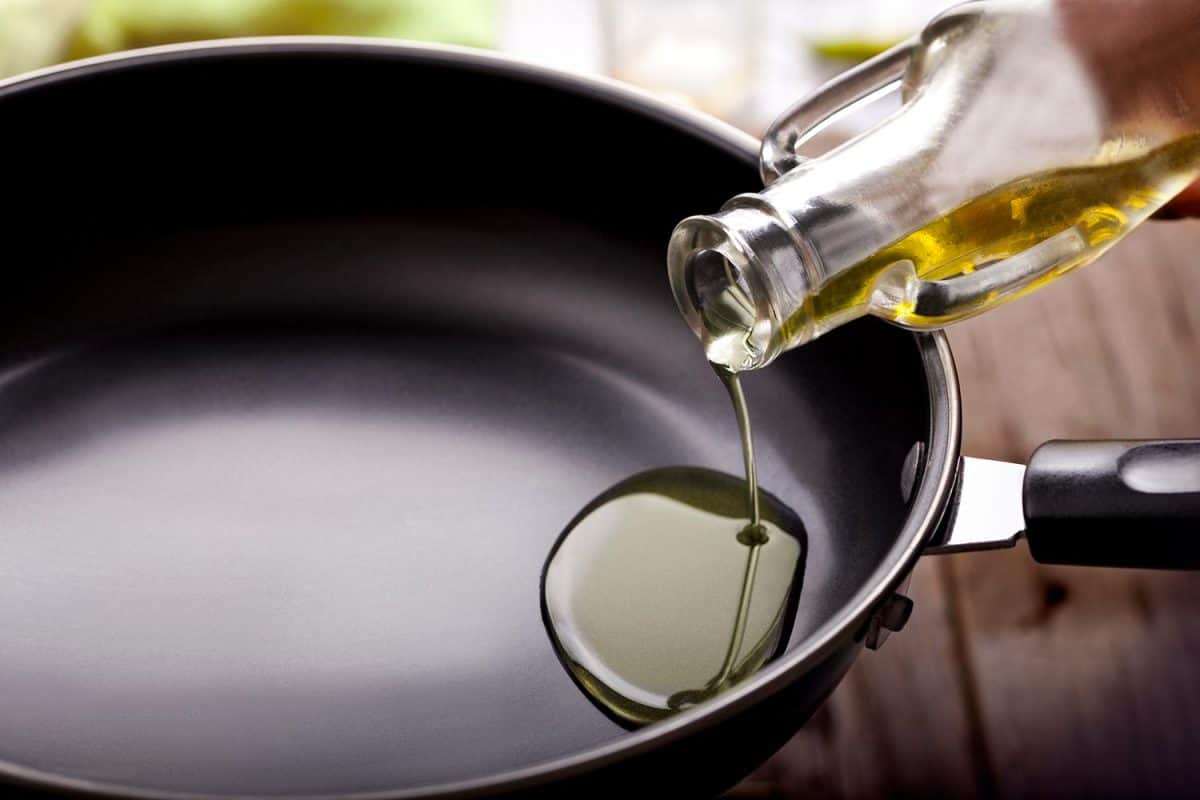
How long can you keep and reuse frying oil?
First, it is important to note that different oils have different smoking points when the oil begins to break down and smoke. Canola, peanut, and vegetable oils all have different smoking points but make for good frying oils.
However, olive oil is not recommended due to its high cost, low smoking point, and strong flavor. Be aware of what the oil you're using brings to the table when using it for frying.
All oil will break down after repeated use. Hot oil engages in a process known as polymerization. The smaller oil molecules will join together over time to form bigger, more solid molecules. This will give your oil a gummy and viscous quality over time.
Even at your best attempts to tend to your oil, it's not recommended to keep using it for over 1 to 2 months. After that, it will start to go rancid.
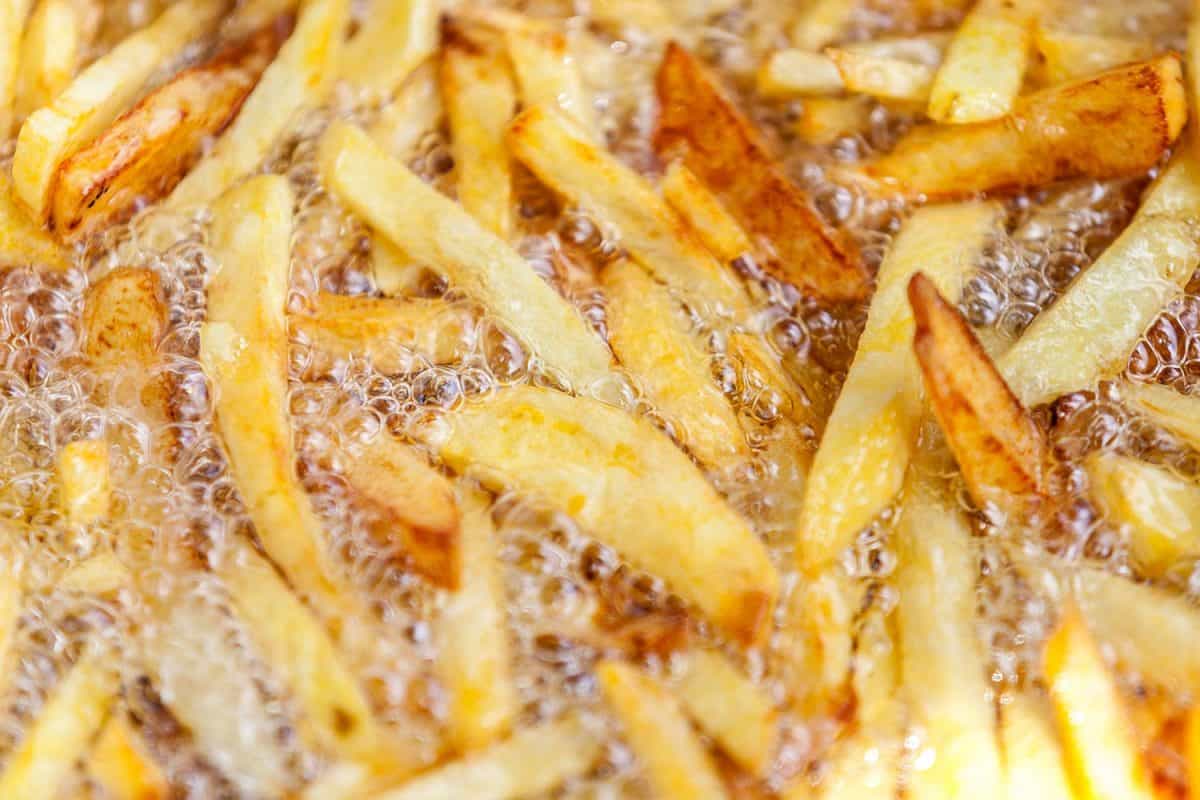
How can you tell if deep fryer oil is rancid?
Luckily for the chef using it, fryer oil has a pretty solid sight and smell test to gauge its freshness. If you're looking for it, you'll be able to tell when your oil's gone rancid fairly easily.
Visual indicators are a darkened and cloudy coloration throughout your oil, as well as a foamy gummy topping. These are indications of polymerization occurring at an increased rate after repeated use.
Strange musty odors and tastes will also accompany rancid oil and your food at this point. If, for any reason, you're unsure about the visual indications of your frying oil, the smell test should certainly tell you your oil is past the sell date.
Read now on KitchenSeer: What Oil Is Best For Frying Donuts?
How long does it take for frying oil to go rancid?
There is no solid answer to how long frying oil will last. Several different factors go into how long a certain batch of frying oil can last you. This includes the type of frying oil you're using, as well as the ingredients you're frying in it.
The aforementioned smoking point of different oils means different breakdown points throughout the process.
If your food leaves behind crumbs and particles in the oil that are hard to clean out or you've neglected cleaning them out, this will also speed up the process. This includes things like chicken and other flakey foods.
The effort you put into straining out these contaminants and keeping your oil in good shape also goes a long way. In general, however, it's recommended not to exceed the 2-month limit on any one batch of oil.
Check the smell and appearance of your oil as you go, with these factors in mind.
Can old frying oil make you sick?
Along with the taste concerns with using old frying oil, you might worry about actual health concerns. Can using rancid frying oil make you sick?
Studies have shown that as oil breaks down more and more, it increases its production of agents known as free radicals. These agents contribute to cell breakdown, linked to Alzheimer's, diabetes, and other diseases over time.
You won't immediately be at risk for these serious conditions if you consume rancid oil once or twice, but you should definitely keep it from being a habit. Rancid oils can also trigger intestinal distress and drain your body of important vitamins like Vitamins B and E. If the oil's gone bad, toss it.
What causes rancidity in oil?
The factors behind rancidity in oil can be found in any kitchen environment. They include exposure to harsh light, intense heat, and water. Introduction to certain microbes and even the very breath of people around the oil also contribute to rancidity in frying oil.
Oils that contain unsaturated fats - that is, fats that allow it to be liquid at room temperature - can go rancid. These unsaturated fats have double carbon bonds in their chemical makeup that can be broken by oxygen in a process known as oxidization. The resulting chemical reactions create products such as aldehyde, ketone, or carboxylic acid. These lead to rancid odors and tastes in degraded oil.
Heat and water have similar effects on the oil. Water is due to the oxygen molecule in each molecule of H2o and heat because it causes the molecules of the oil to vibrate and move about quickly. This is what leads to the shelf life of even the most cared for frying oils.
Read now on KitchenSeer: Should You Boil Chicken Before Frying It?
How do you store oil after frying?
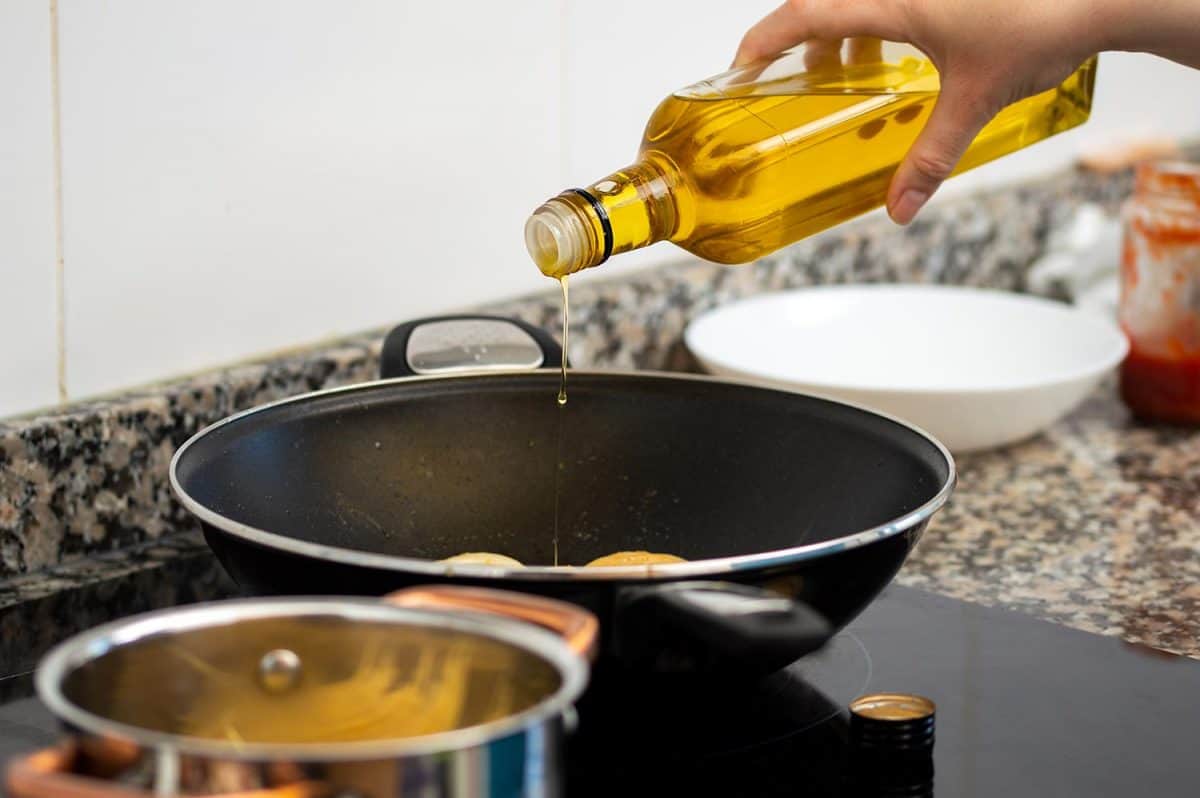
Now that we know how and why frying oil goes rancid, what are some ways we can extend its healthy shelf life? Storing it properly goes a long way in keeping it in good condition. The first thing to do after use, and letting it cool, is to make sure the used oil is completely and properly strained.
Use a cheesecloth or strainer over the container you plan to store the oil in. We also recommend you don't use metal containers other than stainless steel. Metals like copper can interact with the oil. Opaque stainless steel or glass bottles work well.
This will remove any stray bits of food or batter from the oil, keeping them from contaminating the oil, as we mentioned.
Once that's properly handled, you can store your oil bottle in a cool dark place such as your pantry. Avoid heated or light areas such as near the stove. It would help if you also labeled the bottle with the date of use and what you fried in it, as it will have leftover flavor, as mentioned above.
Is it safe to use cooking oil that has been sitting out?
It's again more of a matter of how it's been stored than anything else when it comes to used oil. If you're looking to use oil that's been sitting in a pan for a day or two, it's likely okay from a health standpoint.
But if you fail to strain it of any crumbs or burnt pieces of leftover batter, you'll taste the results in your next meal. Exposure to heat and light will have added effects, as mentioned above as well.
It's unlikely to make you sick if you use yesterday's oil that's been sitting in a pan, but don't make a habit of shirking on proper storage habits when reusing frying oil. It's not only for your own health, but it also just makes your meals taste better.
In Closing
There are many benefits to reusing frying oil, ranging from helping the planet to saving money on ingredients. If done safely, you can get many delicious meals out of your bottle of oil and enjoy your fried foods for months to come. Be responsible and smart about it, and your frying oil will go the distance for you.





